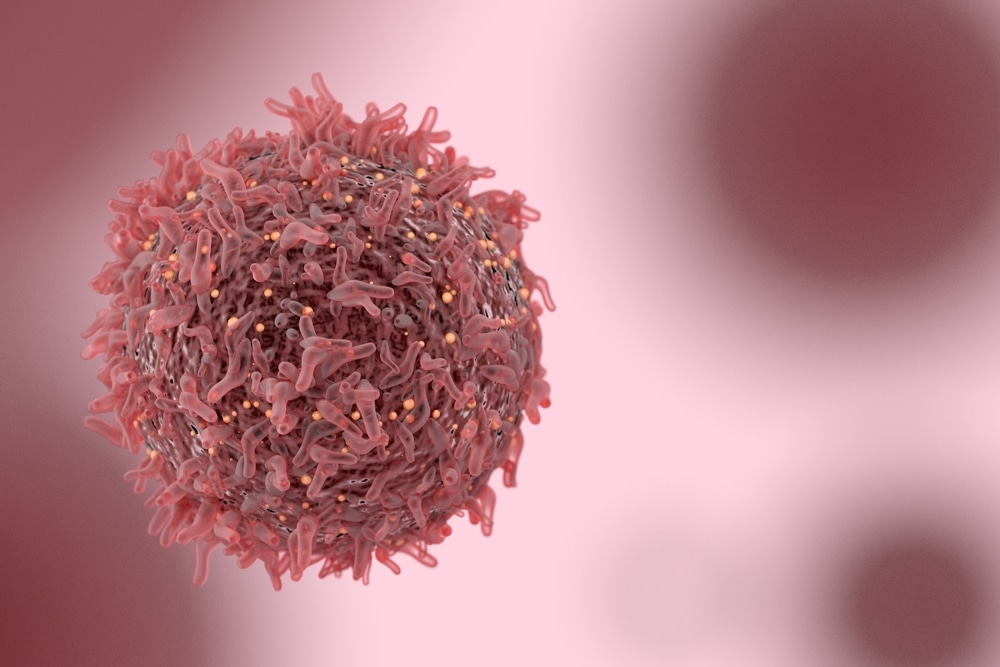Newsletter Signup - Under Article / In Page
"*" indicates required fields
AdAlta Limited and GPCR Therapeutics Inc, are set to collaborate to evaluate AdAlta’s CXCR4 inhibiting i‑bodies as cancer therapeutics, using GPCR Therapeutics’ combination inhibition approach.
AdAlta said its i-body platform is suited to engaging an important class of drug targets called G-protein coupled receptors (GPCRs). One of these GPCRs is known as CXCR4. In addition to its role in fibrotic disease, CXCR4 is also known to be over-expressed in more than 23 cancers, representing a multi-billion dollar drug market. Attempts to develop CXCR4 inhibitors as cancer therapeutics have had limited success to date.
AdAlta owns a panel of i-bodies that inhibit CXCR4 signaling in different ways. The panel includes AD-214, AdAlta’s lead drug candidate, which has been progressed to clinical development for fibrotic diseases.
CXCR4 inhibition
GPCR Therapeutics has discovered that combining CXCR4 inhibitors with molecules inhibiting other GPCRs associated with CXCR4 in cancer can result in superior inhibition of CXCR4.
AdAlta’s CEO and managing director, Tim Oldham, said: “We are delighted to announce this collaboration with GPCR Therapeutics. Through the program, we hope to demonstrate that AdAlta’s i-bodies, when combined with other GPCR inhibitors can have enhanced therapeutic outcomes in cancer, in comparison with the typical approach of inhibiting individual GPCRs. This collaboration is consistent with our strategy of expanding the commercial use of our i-bodies in a cost-effective way.”
GPCR Therapeutics’ CEO, Dong Seung Seen, added: “We are pleased to be working with AdAlta’s expert team to explore synergies between our approach for combination inhibition of GPCRs and AdAlta’s i-body technology. We believe combining AdAlta’s unique i-body technology with our innovative CXCR4 combination therapy-based approach could lead to best-in-class anticancer drugs.”
Collaboration details
Under the collaboration, AdAlta will supply a panel of its CXCR4 inhibiting i-bodies. GPCR Therapeutics will evaluate those i-bodies in combination with a series of generic beta blocker molecules selected from its own platforms which inhibit a GPCR known as B2AR. These studies will evaluate the effect of the combined CXCR4-B2AR inhibition on in vitro cell signaling, cell migration and cell killing. If successful, GPCR Therapeutics will evaluate the combined inhibition of these compounds in vivo in mouse cancer models.
If those studies are successful, AdAlta will have the first option to license and further commercialize resulting products for treating cancer, while GPCR Therapeutics will have the same option if it is not exercised by AdAlta. The parties have agreed that whichever is the licensee under these options will pay the other pre-agreed up-front option exercise fees, development milestones, commercialisation milestones and low- to mid- single digit royalties on sales, subject to development success.
About AdAlta
AdAlta Limited is a clinical stage drug development company headquartered in Melbourne, Australia. It is using its i-body technology platform to solve challenging drug targeting problems and generate a promising new class of single domain antibody protein therapeutics with the potential to treat some of today’s most challenging medical conditions.
The i-body technology mimics the shape and stability of a unique and versatile antigen binding domain that was discovered initially in sharks and then developed as a human protein. The result is a range of unique proteins capable of interacting with high selectivity, specificity and affinity with previously difficult to access targets such as G-protein coupled receptors (GPCRs) that are implicated in many serious diseases. i-bodies are the first fully human single domain antibody scaffold and the first based on the shark motif to reach clinical trials.
IPF treatment
AdAlta has completed phase I clinical studies for its lead i-body candidate, AD-214, which is being developed for the treatment of idiopathic pulmonary fibrosis (IPF) and other human fibrotic diseases for which current therapies are sub-optimal and there is a high unmet medical need. AdAlta has a second target in discovery research, also in the field of fibrosis and inflammation.
The company is also entering collaborative partnerships to advance the development of its i‑body platform. It has a collaboration with Carina Biotech to co-develop precision engineered, i-body enabled CAR-T cell therapies (i-CAR-T) to bring new hope to patients with cancer. It also has an agreement with GE Healthcare to co-develop i-bodies as diagnostic imaging agents (i‑PET imaging) against Granzyme B, a biomarker of response to immuno-oncology drugs, a program now in pre-clinical development.
Oncology R&D trends and breakthrough innovations







